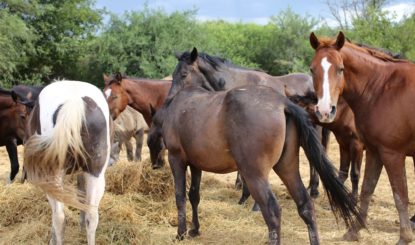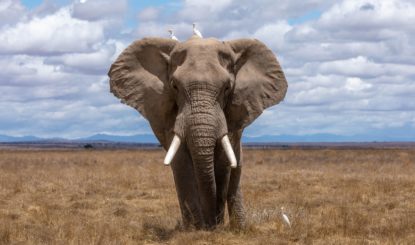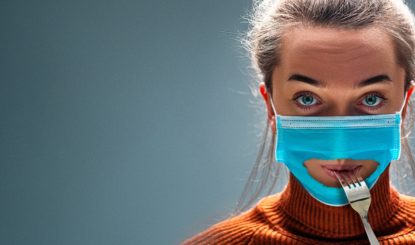Equidad: A Horse’s Life!
Many of you are interested in the horses of our Argentinean sanctuary Equidad and ask us what everyday life looks like for the horses, which are neither used for riding nor as farm animals. The answer is simple: They simply live their lives! And this for practical as well as ideological reasons.
Since most of our animals are survivors of the most severe physical and mental abuse, they are often not in the condition to be ridden. In addition to this important aspect, the decision not to “use” the horses corresponds to a principle we are convinced about: animals do not necessarily have to be useful to humans. In Argentina, nothing works without horses. They are a central part of traditional culture and festivals. It is impossible to imagine life without them as companions of the “gauchos”, the famous Argentinian cowboys. They are also used in various sports, especially in the “pato”, Argentina’s national sport, which is related to polo. Furthermore, the animals are valuable partners for work in the cities and in the fields. However, despite its strong presence, Argentine society as a whole knows very little about this animal and its needs. We have decided to change that!
Respecting basic needs
This is why at Equidad we have made it our mission to allow horses to become what they were meant to be: Free herd animals. Horses have very specific needs to be happy and healthy. They need to be able to move around constantly, to be with other horses, and to eat as much as they want. At Equidad, we have made every effort to respect these principles and to satisfy the needs of these gentle animals – who have gone through hell and have had to earn their existence and their meagre diet all their lives – in the best possible way.
Raising awareness so that horses no longer need to be rescued
Our mission is twofold: First, we want to offer our horses a perfect life, and second, we have an educational goal. By regularly publishing content on social networks, we aim to raise the awareness of Argentinians to eliminate the causes of animal cruelty. If the living conditions of horses in Argentina are to improve in the long term, everyone must participate! Of course, it is essential to rescue and take in those animals for which it is already too late. But it is far more effective to prevent abuses in order to prevent future tragedies.
Debunking myths
Fortunately, we are no longer the only ones who believe that it is necessary to familiarise horse owners with the needs of their companions. More and more researchers are now conducting studies on the needs of horses.
In addition to real abuse and cruel assaults that leave no doubt about the evil intentions of those who perpetrate them, there also exists a subtle and “invisible” form of cruelty to animals. The latter stems from the fact that people who do not know the needs of their horses deprive them of what is most important for the animals. And this is usually done with the best of intentions.
Avoiding humanisation
For example, let’s look at the horsebox. Many riders believe life in a box means comfort for the horse. Some spare no effort to decorate their horse’s home and delight it with extra soft bedding and toys. Sadly, while these people are sincerely convinced of ensuring their companion’s well-being, they are denying its true nature, which inspires the horse to live outside in the rain, rather than being incarcerated in a tiny space.
For many equestrians who project their own human conception of comfort onto the animal, leaving a horse out in the rain or in winter is considered cruel. And yet, it is just the opposite, from a horse’s point of view – with a few exceptions!
The same applies to the interaction between horses. As we know, horses are herd animals, so it is essential for their happiness and balance to let them interact with other horses. The problem is that owners often misinterpret playing as fighting, which is why many deny their horse life in the herd. Although the games can sometimes be extremely brutal and even fatal, games and exchanges are indispensable for horses.
Show horses are sad horses
For show horses, whose value is sometimes in the millions, the reality is even crueller, despite what it may look like: Since owners fear nothing more than their champions getting injured and no longer being able to compete, most trainers or owners deprive them of going out and having contact with potential “buddies” and only take them out of the stable to work them, i.e. rarely for more than two hours a day. For them, the financial value takes precedence over the basic and primary well-being of their “show animal”.
To ease their conscience and to try to boost the spirit of these horses, which often develop behavioural and health issues (stereotypic behaviour, nervousness, ulcers, etc.), many compensate with luxury treatments worthy of spas. This is undoubtedly not unpleasant for the horse and gives the public the feeling that these athletes live the life of a pasha. But no massage in the world makes up for the loss of freedom!
The relationship to the horse must change
Raising awareness of the basic needs of these animals is essential. Our most important aim is to change people’s relationship with horses. At Equidad, we don’t wait for scientists to come to a conclusion before putting recommendations into practice. We don’t have to ride our horses to spend wonderful moments with them: The animals owe us nothing! At the sanctuary, we live together with about 140 horses and donkeys. By observing and caring for them, we notice and live every single day the things that took researchers several decades to write down.
With us, the horses interact freely, play a lot, bathe in the pond and have free access to food and water 24 hours a day. We have no stalls, only enclosures that function as a sickbay when an animal needs medical care. In short, the horses live their lives and their existence at the sanctuary is adapted to their nature. Not ours!
More information:
- Our project page “Sanctuary Equidad”
- This article was first published in the Journal Franz Weber 133. You can find the PDF version of all previous magazines here.
- You have not yet subscribed to our quarterly magazine, the Journal Franz Weber? Order the latest issue for free here (in German and French only).


